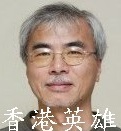

By Joseph Lian Yizheng
24 Jun 2016
Establishment candidates already face a daunting task in the Legislative Council elections in September.
And thanks to bookseller Lam Wing-keeíªs explosive revelations last week, theyíªre in an even bigger trouble than it looks.
Leung Chun-ying promised to write Beijing about Hong Kongíªs íºconcernsí¿ but the gesture is lame.
Does he think Beijing does not know what is going on in Hong Kong in the wake of Lamíªs bombshell?
Leungíªs choice of words (íºconcernsí¿ for one) is dismal. It is nowhere near what every Hongkonger feels about the booksellers saga.
The next chapter of their story is unfolding alongside a similarly shocking development íX another uprising in Wukan (»Qºó), a small village in Guangdong province less than 100 kilometers across the border.
A large protest by Wukan villagers in September 2011 over illegal land grabs forced the Guangdong authorities to back off after arrests and a police siege failed to quell the mass action.
The provincial government later admitted the existence of illegal land seizures and acknowledged the protestíªs leader, a hitherto obscure village chief and local party secretary named Lin Zuluan (¬L»¬ãq).
In 2012, Lin won in Chinaíªs first one-man, one-vote election, seen as an unprecedented concession by Beijing to Wukaníªs growing political importance.
But on Friday, Lin was taken away in a midnight arrest on suspicion of taking bribes. He appeared on TV days later and admitted to corruption, triggering protests by his supporters who accused the authorities of orchestrating the confession.
Before Liníªs arrest, villagers had been petitioning the local government against the sale of communal land forcibly taken from them with little or no compensation.
Hongkongers are no stranger to televised confessions. They saw one after another when Lam and his four colleagues emerged on state media, after disappearing for weeks, to confess their purported crimes.
Unlike the booksellersíª case, Liníªs arrest and detention involves a democratically elected public official.
This is an object lesson in how democracy and free election are futile in the absence of the right to self-determination.
And it is something Hong Kong can learn from.
The 2012 Wukan election was the first of its kind in China. It offered a glimpse into Beijingíªs attitude toward the political process including its treatment of íºone country, two systemsí¿, the very principle that allows Hong Kong, a capitalist society, to exist in a communist state.
Beijing loyalists have been saying genuine democracy and Beijing sovereignty can co-exist in Hong Kong, so doníªt be surprised if the SAR government tables an election reform bill that is a slightly tweaked version of its former iteration.
That would shift public attention to political reform from an ongoing discussion about self-determination.
Thinking independence
In recent interviews, Lam said he is not keen to return to China to help investigators and that if he had to seek asylum, he would choose Taiwan because itíªs a real democracy.
Also, he said Hong Kong independence is íºfeasible and worth supporting when íÑone country, two systemsíª has led us nowhereí¿.
Young people want independence. That is their political inclination and they need no explanation.
But the middle-aged average person like Lam has certain reasons for wanting independence. These are the product of thoughtful reflection.
No one knows exactly how independence and self-determination can be achieved in Hong Kongíªs case.
But in specific issues, these principles are reflected in the ongoing campus debate over when and how to end the chief executiveíªs ex-officio power to appoint university council chairmen and council members.
Will Beijing put off the 2017 election?
No one has come out to contend for Hong Kongíªs top job. Every time thereíªs talk about it, Leungíªs chances of re-appointment rise.
A candidate needs time to assemble his team and craft his agenda, so it pays to start early.
Meanwhile, Beijingíªs silence is being interpreted as a sign it does not want any new entrants.
People should not forget that the chief executive election is not democratic.
Last time Beijing tried to put up a semblance of a democratic contest, it ended up with a bruising, scandal-ridden election campaign on its hands between Leung and then chief secretary Henry Tang in 2012.
Leung and Tang took a hit to their respective credibility and tested the unity of the pro-Beijing bloc.
This time, Beijing thinks the later the race begins, the less likely it will get out of control.
If it decides to jettison Leung at the last minute, that should not be a problem either. Conceivably, it has some people íX even an entire team íX on a short list.
In any case, Beijing decides. The race is none of our business.
This article appeared in the Hong Kong Economic Journal on June 23
Translation by Frank Chen